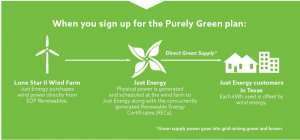This website uses cookies so that we can provide you with the best user experience possible. Cookie information is stored in your browser and performs functions such as recognising you when you return to our website and helping our team to understand which sections of the website you find most interesting and useful.
September 5, 2018
Intuit Brings Renewable Energy to Its Customers – Deepening Connections & Advancing Shared Goals
Last year, Sustainability visionary John Elkington, who made his name coining such terms as the “triple bottom line” and “People, Planet, Profit”, introduced six mental and political frames at work in the sustainable business space, which – as George Lakoff notes in his book Don’t Think of an Elephant! – have the power to “shape the goals we seek, the plans we make, the way we act, and what counts as a good or bad outcome of our actions.”
As Sustainability Roundtable Inc. (SR Inc) Founder and CEO Jim Boyle observed in SR Inc’s Winter Newsletter, our Member Executives are increasingly using more sophisticated frames in helping their enterprises drive towards greater sustainability. By embracing a “Value Frame” that acknowledges the financial opportunities associated with greater sustainability (and costs of inaction), they are helping their enterprises “draw back the aperture and “see” what their workplace could be if it becomes demonstrably better at supporting sustainability, human health and collaboration.” Other Member-Clients are advancing an “Abundance Frame” (which Elkington describes as embracing a “10X exponential change, rather than the current preference for 1%-10% incremental change”) through, for example, making bold commitments to 100% renewably powered operations.

These advanced ways of operating, Boyle suggests, “enable leaders to become unafraid of the “Moral Frame,” which acknowledges that the most sought-after customers and talent value those leaders and enterprises willing to do what the society as a whole clearly needs; especially if doing so is not a matter of compliance with today’s law but, instead, an act of leadership.”
Sean Kinghorn is one Member Executive who has clearly embraced these breakthrough frames in his work as the Senior Sustainability Program Manager for financial software company Intuit, makers of TurboTax, Quickbooks and Mint. Kinghorn has long been on the leading edge of sustainability solutions for his company’s operations, leading the company to set ambitious targets to reduce greenhouse gas (GHG) emissions 20% by 2020 and 80% by 2050 from a 2012 baseline. Intuit managed to sail past its 2020 goal 4 years early through innovative investments in renewable energy. In one deal to source renewable energy for all of Intuit’s headquarters campus – which includes both owned and leased buildings on different lease terms – Sean negotiated a blended Power Purchase Agreement (PPA) from multiple renewable energy projects, which was 40% below the cost of traditional grid electricity. Sean shared with Member-Clients the best practices and lessons learned from this and other renewable energy deals he’s overseen at our year-end 2016 Summit for Sustainable Operations in Washington DC (presentation here).

As Intuit makes impressive strides towards its own emissions targets, it is now helping its customers to do the same. This past April, Intuit announced a partnership with Just Energy that will enable its customers, employees and business partners in Texas to buy wind energy at or below the price of traditional grid power. The Program – Purely Green – offers participants direct access to energy produced by the Lone Star Wind Farm in West Texas. Customers receive the renewable energy certificates (RECs), which will help small businesses to achieve their own carbon reduction targets. “The goal is to create a market signal to say there is a demand for wind farms,” Kinghorn said.
Intuit’s Purely Green program represents the next generation in Corporate Sustainability, leveraging its market  power as a corporate to create access for exponentially more renewable energy buyers to enter the market. Not only does this move deepen the company’s connections with its employees and customers and advance shared goals; by encouraging new buyers to enter the market, Intuit could create a catalytic shift in the demand for renewable energy.
power as a corporate to create access for exponentially more renewable energy buyers to enter the market. Not only does this move deepen the company’s connections with its employees and customers and advance shared goals; by encouraging new buyers to enter the market, Intuit could create a catalytic shift in the demand for renewable energy.
These game-changing initiatives are nothing new to Intuit, who in 2017, announced a partnership with Lyft to donate a percentage of the proceeds from all Lyft rides taken by Intuit employees to UN-REDD+ projects, which reduce emissions from deforestation and forest degradation in developing countries. Sean’s leadership on these and several other initiatives at Intuit are part of his dedicated interest in aligning the company with Project Drawdown – an effort introduced by Paul Hawken’s book to move the planet towards climate drawdown, the point at which greenhouse gas concentrations in the atmosphere begin to decline year-over-year. (Read more about Sean’s commitment to Project Drawdown in our blog post here.) Kinghorn’s leadership has not only pushed Intuit to operate with shrinking footprint, but also enabled the company to drive breakthroughs in the way corporate sustainability is defined, expanding the company’s “handprint” and helping employees and customers to chart their own path towards greater sustainability.

